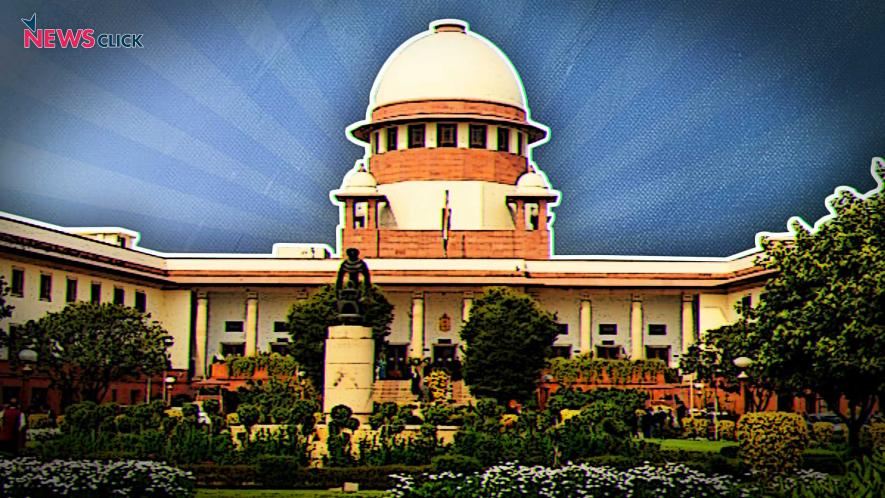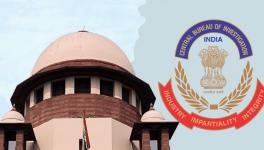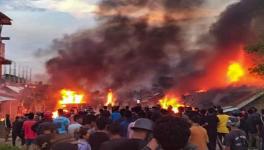CBI Row: Should the Selection Committee be Consulted for Transfers?

New Delhi: On Thursday, a bench of the Supreme Court consisting of the Chief Justice of India Ranjan Gogoi, Justice Sanjay Kishan Kaul and Justice K.M. Joseph, heard the petitions connected to the transfer of the Director of the Central Bureau of Investigation (CBI) Alok Verma. The Chief Justice restricted the arguments to only those concerning the Order of October 23. For the petitioners, Senior Advocate Fali S Nariman appeared for Alok Verma. Senior Advocate Rajeev Dhavan appeared for CBI officers, Ashwini Kumar Gupta and AK Bassi and Senior Advocate Indira Jaising appeared for Deputy Inspector General of the CBI, MK Sinha. Senior Counsel Dushyant Dave appeared for the non-governmental organisation (NGO) Common Cause and Senior Advocate Kapil Sibal appeared for Congress leader Mallikarjun Kharge. The Attorney General (AG), KK Venugopal represented the Union of India.
Petitioner’s Arguments
The arguments challenging the October 23 Order were based largely on the Vineet Narain case and the Delhi Special Police Establishment Act, 1946. In the 1997 decision of the Supreme Court, the Court had passed directions in order to insulate and provide the CBI and the Central Vigilance Commission with autonomy. The relevant part of the directives concerns the appointment and tenure of the Director of the CBI. The Court had directed that;
- A Selection Committee headed by the Central Vigilance Commissioner along with the Home Secretary and the Secretary of Personnel shall recommend names for the post of the Director of the CBI. The incumbent Director’s views shall also be considered by the Committee.
- The Committee shall draw up a panel of IPS officers on the basis of their seniority, integrity, experience in investigation and anti-corruption work.
- The final selection shall be made by the Appointments Committee of Cabinet (ACC) from the list of names recommended by the Selection Committee. If none of the names are found to be suitable, the reasons the reasons shall be recorded and the Committee asked to draw up a fresh panel.
- The Director, CBI shall have a minimum tenure of two years, regardless of the date of his superannuation. This would ensure that an officer suitable in all respects is not ignored merely because he has less than two years to superannuate from the date of his appointment.
- The approval of the Selection Committee is required if an incumbent Director is to be transferred.
- The Director, CBI, shall have full freedom for allocation of work within the agency as also for constituting teams for investigations. Any change made by the Director, CBI, in the Head of an investigative team, should be for cogent reasons and for improvement in investigation, the reasons being recorded.
The Supreme Court had also directed that the CVC should be made a statutory authority and Parliament acted on this directions by introducing the Central Vigilance Commission Act in 2003. The Act also made amendments to the Delhi Special Police Establishment Act, 1946 by introducing sections 4A and 4B. Section 4A prescribes the composition of the committee to appoint the CBI Director and section 4B prescribes the Director’s terms and conditions of service. Clause 2 of this section states; “The Director shall not be transferred except with the previous consent of the Committee referred to in sub-section (1) of section 4-A.”
The Lokpal and Lokayuktas Act, 2013 further amended section 4A of the Delhi Special Police Establishment Act by making the Prime Minister the Chairperson and the leader of the opposition along with the Chief Justice of India or a Judge appointed by him as members of the selection committee. Thus, these three additional members would also have to be consulted in case the CBI Director has to be transferred.
Respondents’ Arguments
The AG, KK Venugopal defended the government’s decision by stating that the selection committee is different from the appointment committee. He stated that the selection committee places its recommendations before the government after which, the selection committee’s role and function ends. The AG brought the Court’s attention to section 8(1)(a) and 8(1)(b) of the Central Vigilance Commission Act as well as section 4(2) of the Delhi Special Police Establishment Act.
Sections 8(1)(a) and 8(1)(b) of the Central Vigilance Commission Act both deal with the power of the Commission to exercise superintendence over the CBI. Sub clause b in particular, empowers the CVC to give directions to the CBI regarding investigations into offences under the Prevention of Corruption Act, 1988. In this regard, the CVC acting on the CBI Special Director, Rakesh Asthana’s complaint to the Cabinet Secretary, was within its powers to take up the inquiry into CBI Director Alok Verma.
With regard to section 4(2) of the Delhi Special Police Establishment Act, the superintendence of all matters other than investigation into offences under the Prevention of Corruption Act, will vest with the Union Government. Therefore, the Order of October 23, was well within the powers of the Government. The AG further submitted that the decision to suspend Verma was a necessity to safeguard the public’s confidence in the institution, especially due to the conflict between the Director and Special Director.
The Supreme Court informed the parties that they have read the CVC’s report of the inquiry into the allegations against Verma. They have asked the parties to respond on whether the Court should take judicial note of the report. The next date has been listed for Wednesday, December 5.
Tags: Central Bureau of Investigation, CBI, Alok Verma, Rakesh Asthana, Central Vigilance Commission, CVC, Delhi Special Police Establishment.
Get the latest reports & analysis with people's perspective on Protests, movements & deep analytical videos, discussions of the current affairs in your Telegram app. Subscribe to NewsClick's Telegram channel & get Real-Time updates on stories, as they get published on our website.
























